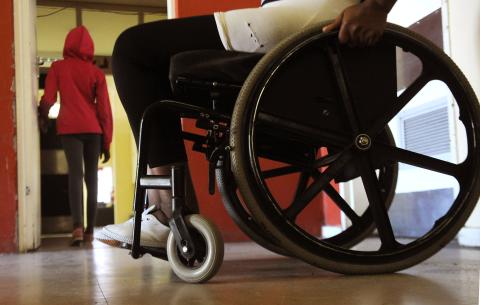
They also complained that they had been ignored in designing interventions regarding issues that affect them the most.
Women with disabilities across Nigeria have lamented their exclusion from intervention programmes by governments meant to cushion the effect of the COVID-19 pandemic.
The women, who spoke in a virtual meeting organized by BONews Service with support from Urgent Action Fund-Africa, said the government had neglected them.
They also complained that they had been ignored in designing interventions regarding issues that affect them the most.
Egwu Stella Udoka, who hailed from Ebonyi State, said Governor Dave Umahi gave N1m to PWDs across the state during the lockdown, adding that each person only got N1,500.

She added that most people couldn’t go to the distribution point to collect the money as there was lockdown in the state, adding that the cost of transportation was more than the N1,500 the government was distributing.
She said, “Also, because of our disabilities, we couldn’t move independently and it is an extra cost to go with an aide because we want to collect N1,500.
“If persons with disabilities were included in the planning stage, the governor would have known that N1m might sound huge but it can’t cater to the needs of the disabled people in the state.”
Bilikisu Ado Zango, a citizen of Kano State, said palliatives distribution in the state didn’t reach those at the grassroots.
She called for disability inclusion at all levels, adding that sidelining women with disabilities at various levels of governments makes their lives difficult.
Similarly, Ibitoye Helen, who lives in Ekiti state, said the government excluded women with disabilities from the distribution of relief packages in the state but went on-air to announce people with disabilities were taken care of.
She, however, noted that the government was forced, after public outcry, to make provisions for persons with disabilities in the distribution of palliatives.
“When Governor Fayemi started the distribution of the palliative, we (women with disabilities) didn’t get anything, even when the government officials were announcing that they had been sharing it with persons with disabilities across the state.
“It was when the state secretary of JONAPWD complained on social media that we were called to come and get our share,” Helen said.